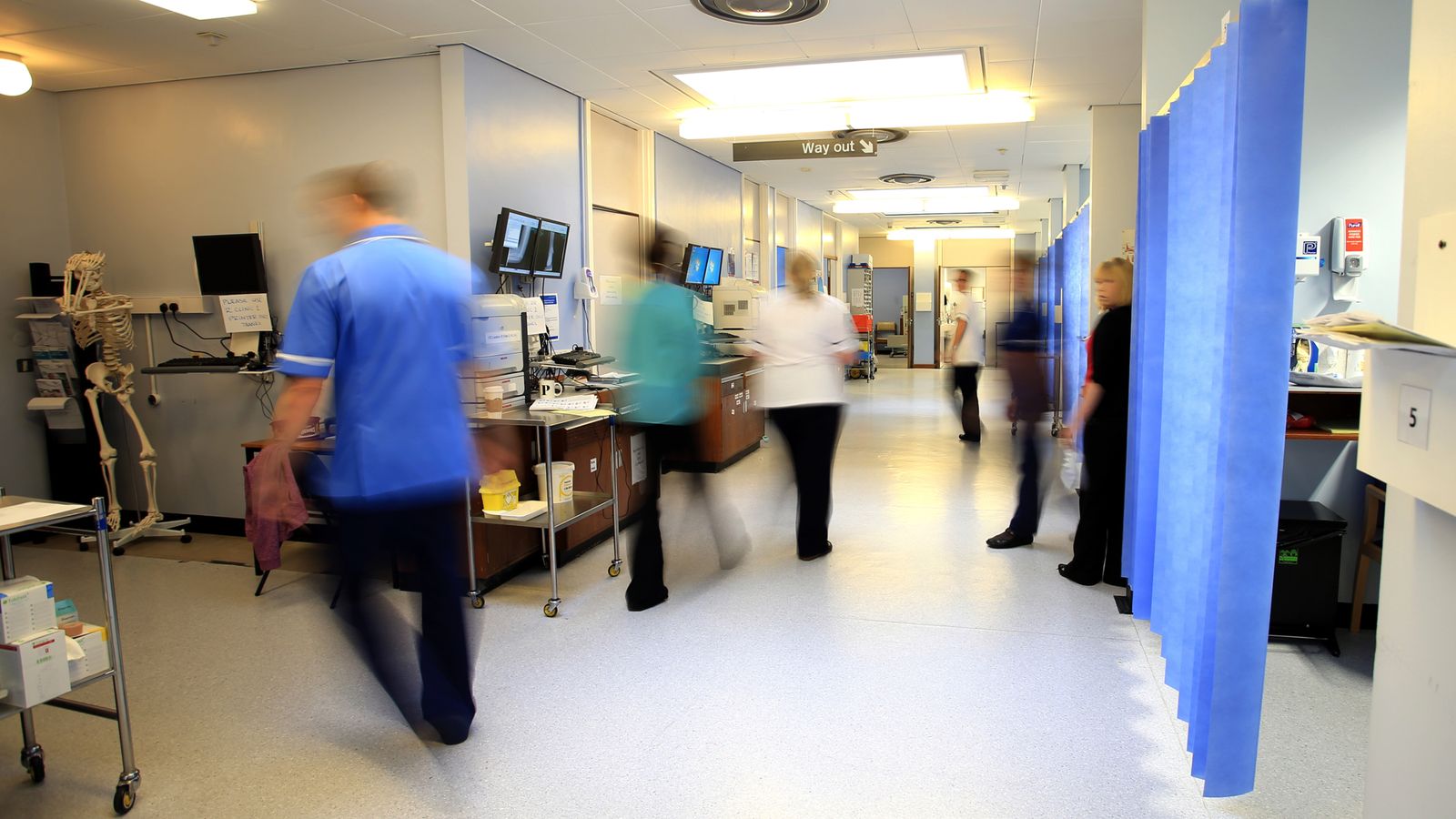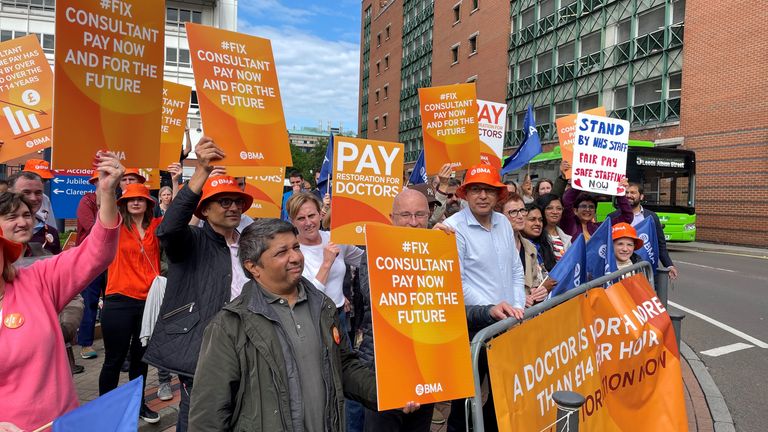NHS to be ‘hit hard’ as consultants in England walk out for 48 hours – with further strikes announced


Routine hospital care is expected to come to a standstill as consultants in England strike for 48 hours in the bitter row over pay between medics and the government.
As the latest strike began today, the British Medical Association (BMA) announced plans for a three-day walkout later in the year.
Medics will strike on 2, 3 and 4 October and are also planning to walk out on 19 and 20 September.
NHS leaders are expecting “major disruption” during the current walkout, with thousands of the most senior hospital doctors expected to be absent from work.
But consultants will still provide “Christmas Day cover” during the strikes, meaning emergency care will be provided.
Concerns have been raised about the timing of the strike – just before the bank holiday weekend – which could put many services out of action for five days.
Many staff will be on annual leave and warmer weather seen in recent days could increase demand for care, NHS leaders said.
The government has insisted talks on pay are over after it said consultants would receive a 6% rise.
But the BMA condemned the increase as “insulting” and claimed consultants have experienced a “35% pay erosion” over the last 14 years.
Advertisement
Read more:
What is happening to consultants’ pay?
How Britons really feel about the NHS
Strikes ‘will hit NHS hard’
Dr Vin Diwakar, NHS England’s national medical director for secondary care, said the latest strike action “will again hit the NHS hard, with almost all routine care being affected”.
He added: “It also comes at a time when many staff are taking annual leave, so teams are already stretched, and some parts of the country have seen warm weather this week, which usually leads to an additional rise in demand for services, so we would ask people to take the usual precautions.
“We are working closely with unions to ensure we prioritise urgent and emergency care for patients, as ever, but there is no doubt that it becomes harder each time to bring routine services back on track following strikes, and the cumulative effect after nearly nine months for patients, staff and the NHS as a whole is enormous.”
People should continue to use 999 for life-threatening emergencies and NHS 111 for other health concerns, officials said, while GP and pharmacies are largely unaffected.
Please use Chrome browser for a more accessible video player

2:14
NHS treatment list at record high
Government says pay award is ‘final’
Health and Social Care Secretary Steve Barclay said he was “concerned and disappointed that the BMA has gone ahead with this industrial action, which will continue to affect patients and hamper efforts to cut NHS waiting lists”.
He added: “We have accepted the independent pay review body recommendations in full, giving consultants a 6% pay rise, which means average NHS earnings for consultants of £134,000, on top of a pension where generous tax changes mean a consultant can retire at age 65 with a pension each year for life of £78,000 a year.
“This pay award is final and I urge the BMA to call an end to strikes.”
Wes Streeting, Labour’s shadow health secretary, said: “The Conservatives have given up any attempt to solve strikes in the NHS. Rishi Sunak refuses to speak to doctors and instead shamelessly uses them as an excuse for his failure to cut waiting lists.
“Patients don’t want excuses, they want action. If the Conservatives have given up on governing, they should step aside and let Labour clean up their mess.”